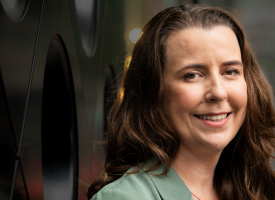UCC funding should be more fairly distributed
All investment into the healthcare sector is welcome, but urgent care clinics are not the solution to improving access to healthcare, AMA Queensland President Dr Nick Yim told ABC Radio Gold Coast. "We don't feel that this is the best measure and the best investment of our important healthcare dollars... some of this money or this investment could be spent direct into hospitals, or even to help support our existing GP practices."

Transcript: AMA Queensland President, Dr Nick Yim, ABC Radio Gold Coast, Mornings with Tom Forbes, Thursday 21 November 2024
Subject: Southport Urgent Care Clinic
TOM FORBES: Urgent care clinics – have you been to one? They're bulk billed, designed to reduce pressure on emergency departments, and the second of two on the Gold Coast is opening today in Southport. According to the federal government, urgent care clinics may be one answer to the state's ambulance ramping crisis. Twenty-nine clinics were announced in the federal budget. One is already operating in Oxenford. The Federal Health Minister, Mark Butler, told the ABC's Nicole Dyer the Oxenford clinic is seeing hundreds of patients every week.
MARK BUTLER: And already across the country, 900,000 patients have gone through our urgent care clinics. And at Oxenford there's been around 10,000 patients gone through. Generally, it's around 300 every week. And this is open seven days a week, it's fully bulk billed, so completely free of charge and available for walk in appointments. So, what it's designed to do really, is to take pressure off the local ED. And we know how important that is at the Gold Coast, because you have the busiest emergency department in the country. But also, just give people and particularly parents, an option to get urgent care they need very quickly, but not necessarily in a hospital emergency department. So, what we're finding at Oxenford is that two out of every five patients that have gone through that clinic were under the age of 15. So your kid falls off the skateboard and breaks their wrist, gets injured at Saturday afternoon sport, or has a respiratory illness that you're desperately worried about and can't wait a few days to get into your normal GP. That's an option for them, and they get high quality care – doctors and nurses who often have a background in emergency medicine.
TOM FORBES: Dr Nick Yim is the President of AMA Queensland, and he joins you now. Good morning, Dr Yim.
DR NICK YIM: Good morning.
TOM FORBES: Now these urgent care clinics are working in Southeast Queensland already. How do they actually work?
DR NICK YIM: So urgent care clinics, they are a federal initiative to try and improve access to healthcare. However, AMA Queensland, we do have some concerns regarding this measure. While we do welcome any investment into the healthcare sector, it's something where, what are the outcome measures and we are not aware of what, if there's any, research that's been done into that to this date.
TOM FORBES: Are you concerned that these clinics could be taking work away from other GPs in their clinics?
DR NICK YIM: You're spot on there. I think that’s one of the concerns. Across the state, the country, we do have a workforce shortage. So that includes GPs, nurses, administration staff. We need to ensure that many of these urgent care clinics aren't splitting the workforce and leaving other locations short.
TOM FORBES: Do you think it's causing confusion among people as well? They're not feeling well, they can't get into their local GP, they probably don't listen to the radio or watch the news as much as others and then they hear about these urgent care clinics. Is there some confusion about selling the message about what they do?
DR NICK YIM: I think there is definitely confusion within the sector. The most important person is your regular GP practice and what we generally recommend is to please contact your regular GP because the majority of GPs will have those urgent appointments, or they can triage. What that means is they can assess them over the phone, via a nurse, their receptionist or their GP to ascertain where the best location is to present. We do know that unfortunately, some people do present to the wrong location, a little bit confused of what services they do offer, and at the same time maybe a bit confused about how serious their health condition is. We don't want people presenting at the wrong location. And obviously we do have our emergency centres as well, such as the Gold Coast University Hospital, which is a full-blown emergency department.
TOM FORBES: The Federal Health Minister, Mark Butler, says that these clinics or these new clinics will give people an alternative to the overcrowded emergency departments. You just mentioned, the one at Southport there. Can you see the argument as to why the federal government is opening these clinics?
DR NICK YIM: I can see their point of view, but we don't feel that this is probably the best measure and the best investment of our important healthcare dollars. I think it's something where our hospitals, we do have challenges. The pressure comes within the hospitals with bed block. We need to ensure that there is flow through the hospital to ensure people are going in there and also at the same time being discharged appropriately. We believe that some of this money or this investment could be spent direct into hospitals, or even to help support our existing GP practices to improve their patient flow in and out, and see them easier.
TOM FORBES: So, what you're saying is that you think a more efficient and better managed emergency department in an existing hospital would work better than opening these urgent care clinics?
DR NICK YIM: I think the funding that we’re utilising for these urgent care clinics can be used much more wisely. Obviously, it's positive to see on the Gold Coast they've got two urgent care clinics now. But what's happening in our regional and rural areas, what about those locations who don’t have an urgent care clinic? They're not actually benefiting from that funding. I think we need to have a whole system approach. So, where can we invest appropriately and improve those efficiencies?
TOM FORBES: You mentioned you were worried about splitting the GP workforce. I'm imagining these urgent care clinics are staffed by GPs. Are we seeing a drain to these urgent care clinics at this stage?
DR NICK YIM: It's really hard to say. It's still relatively new data that needs to come out and evaluate it. But anecdotally, across the state, we are hearing that it is draining some of the local practices. And that's something that's really important is that a lot of the existing practices across the state have set up their own workforce – their nurses, doctors, administration staff, and we should be working with those local practices on the floor and also those local hospitals to see what is the best measure for that area.
TOM FORBES: Is it an appealing place to work, do you imagine – an urgent care clinic for a GP?
DR NICK YIM: It's really hard to say. I have a GP practice in Hervey Bay, and we do a lot of urgent care myself. We don't call ourselves an urgent care clinic, but we do our stitching, we manage ankle sprains, we look after bites and things and we get our patients in on the day, especially for those urgent situations.
TOM FORBES: Dr Nick Yim is the President of AMA Queensland. He joins you this morning with news that a second urgent care clinic is opening on the Gold Coast today. Dr Yim, we mentioned earlier that it's hard to get into a GP sometimes. How do we make it easier for people to get into a GP quickly when they wake up in the morning and something is not right, but it's not serious enough to present at an ED?
DR NICK YIM: I think it's something where having that direct relationship with your GP or your medical centre, and actually asking them that question – what is their process of assessing for people who are unwell? As you can imagine, it can be quite anxious and nerve wracking, especially when you wake up in the morning with a young child who is unwell. But majority of GP practices will have the capacity to potentially see someone, maybe on the day they have their emergency appointments allocated, but it's actually communicating with that GP to see what their options are.
TOM FORBES: Okay, Dr Yim, thank you for your time this morning.
DR NICK YIM: Always a pleasure. Thank you.
Contact: AMA Queensland Media: +61 419 735 641 media@amaq.com.a



